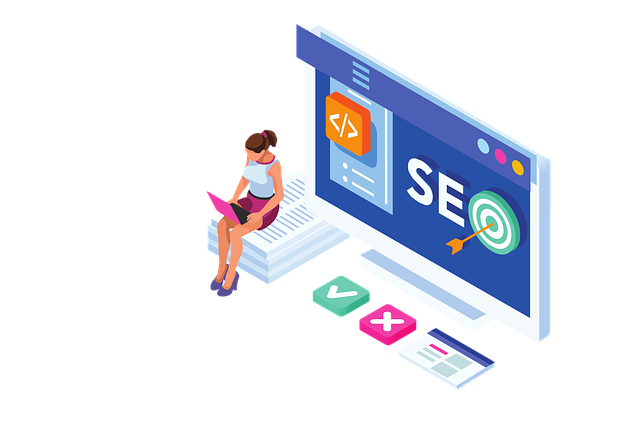Are you an ecommerce entrepreneur looking to take your Shopify store to the next level? If so, then mastering the art of Shopify SEO is essential for your business success. From increasing website visibility to driving qualified organic traffic, Shopify SEO can do wonders for your ecommerce store. In this article, we will explore the benefits and Shopify SEO best practices that can significantly boost your business.
Increased Organic Visibility
First and foremost, Shopify SEO ensures that your online store appears on the top of search engine results pages (SERPs), making it easier for potential customers to find you. When a user searches for a specific product or service, search engines like Google analyze and rank websites based on their relevance to the search query. By optimizing your product descriptions, meta tags, and URLs, you can enhance your website’s visibility and attract more targeted traffic.
Implementing effective keyword research and incorporating relevant keywords throughout your website can significantly improve your organic visibility. By understanding what your target audience is searching for, you can strategically optimize your content to align with their search intent. This not only helps in driving organic traffic but also increases the chances of converting those visitors into paying customers.
Moreover, optimizing your Shopify store for local SEO can further enhance your organic visibility. By targeting location-specific keywords and integrating local business schema markup, you can attract customers in your target geographic area. This can be particularly beneficial for brick-and-mortar businesses or online stores that have a physical presence.
Improved Website Performance
In today’s fast-paced digital world, website performance plays a crucial role in user experience and overall success. A slow-loading website can lead to frustrated visitors who are more likely to abandon your site and look for alternatives. This not only results in a loss of potential sales but also negatively impacts your search engine rankings.
Shopify SEO helps improve user experience by optimizing your website’s speed, mobile-friendliness, and overall performance. By optimizing images, minifying CSS and JavaScript files, and leveraging browser caching, you can significantly reduce page load times. This ensures that your website loads quickly, providing a seamless browsing experience for your visitors.
Additionally, mobile optimization is a key aspect of Shopify SEO. With the increasing use of smartphones for online shopping, it is essential to have a mobile-friendly website. Search engines like Google prioritize mobile-friendly websites in their search results, making it crucial to optimize your Shopify store for mobile devices. Responsive design, mobile-friendly navigation, and fast-loading mobile pages are some of the elements to focus on for better mobile performance.
Enhanced User Experience
A positive user experience is essential for the success of any ecommerce store. When users visit your website, they expect a seamless and intuitive browsing experience. If they encounter difficulties in finding information or navigating through your site, they are more likely to leave and explore other options. This not only increases bounce rates but also negatively impacts your search engine rankings.
Shopify SEO focuses on enhancing user experience by optimizing various aspects of your website. It includes improving website navigation, ensuring easy access to important information, and organizing content in a user-friendly manner. By optimizing your website’s structure and information architecture, users can easily find what they are looking for, leading to increased engagement and higher chances of conversion.
In addition to navigation and structure, the overall design and aesthetics of your Shopify store also contribute to user experience. A visually appealing and well-designed website creates a positive impression on visitors and instills trust. Shopify provides a wide range of customizable themes and templates that allow you to create a visually stunning and user-friendly store.
Higher Conversion Rates
Ultimately, the success of an ecommerce store is measured by its conversion rates. Converting visitors into paying customers is the primary goal of any online business. Shopify SEO plays a crucial role in optimizing your website to maximize conversions.
By targeting relevant keywords and optimizing your content for search engines, you can attract qualified organic traffic to your Shopify store. These visitors are more likely to be interested in your products or services, increasing the chances of conversion. Additionally, by optimizing product pages with persuasive copy, clear calls to action, and user reviews, you can further enhance the conversion potential.
Furthermore, implementing effective SEO strategies on your Shopify store can also result in cost savings by reducing your reliance on paid advertising. While paid advertising can be effective in driving immediate traffic, it can be costly and unsustainable in the long run. By investing in Shopify SEO and improving your organic visibility, you can drive consistent and targeted traffic without the ongoing expenses of paid campaigns.
Shopify SEO Best Practices
To leverage the full potential of Shopify SEO, it is crucial to follow best practices and stay updated with the latest trends. Here are some key tips to optimize your Shopify store for search engines:
- Keyword Research: Conduct thorough keyword research to identify relevant keywords with high search volume and low competition. Use keyword research tools like Google Keyword Planner or SEMrush to discover valuable keywords for your business.
- Content Optimization: Optimize your product descriptions, meta tags, headings, and URLs with relevant keywords. Ensure that your content is unique, informative, and valuable to both search engines and users.
- Site Structure: Organize your Shopify store in a logical and hierarchical manner. Use categories, subcategories, and collections to group similar products together. This helps search engines understand the structure of your website and improves user navigation.
- Page Speed: Optimize your website’s speed by compressing images, minifying CSS and JavaScript files, and leveraging browser caching. Use tools like Google PageSpeed Insights to identify areas for improvement and optimize your Shopify store accordingly.
- Mobile Optimization: Ensure that your Shopify store is fully optimized for mobile devices. Use responsive design, optimize images for mobile, and ensure that your website is mobile-friendly. Test your mobile site using tools like Google’s Mobile-Friendly Test to identify any issues and make necessary improvements.
- Link Building: Build high-quality backlinks from authoritative websites to improve your Shopify store’s credibility and search engine rankings. Focus on obtaining links from relevant and trustworthy sources in your industry.
- Monitoring and Analytics: Regularly monitor your website’s performance using tools like Google Analytics. Analyze key metrics such as organic traffic, conversion rates, and bounce rates to identify areas for improvement and optimize your Shopify store accordingly.
By implementing these best practices and staying up to date with the latest SEO trends, you can maximize the benefits of Shopify SEO and boost your ecommerce success.
In conclusion, mastering Shopify SEO is crucial for boosting your ecommerce success. From increased organic visibility and improved website performance to enhanced user experience and higher conversion rates, the benefits of Shopify SEO are truly astonishing. By implementing effective SEO strategies and following best practices, you can take your Shopify store to new heights and achieve remarkable business growth. So, start optimizing your Shopify store today and unlock the hidden gems of ecommerce success.


